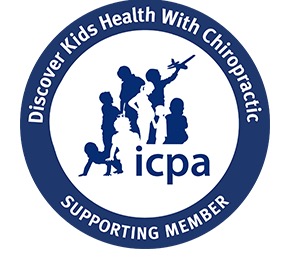In the fast-paced and demanding landscape of modern life, individuals are increasingly grappling with a myriad of environmental stressors that take a toll on their well-being.
From incessant technological demands to environmental pollutants and the pressures of daily life, the impact of these stressors is profound and far-reaching. The good news is that there are ways to fix the problem.
More and more people are turning towards chiropractic care as a potential solution for stress. Let’s take a look at chiropractic care for stress and how it can help.
The Problem of Environment Stressors
In the modern era, individuals are confronted with an array of environmental stressors that significantly impact their daily lives. These stressors encompass various facets, including the constant connectivity of technology, exposure to pollutants, demanding work schedules, and societal expectations.
The effects of environmental stressors extend beyond the physical realm, permeating mental and emotional spheres. Chronic exposure to stress can manifest in physical ailments, such as headaches, muscle tension, and sleep disturbances.
Concurrently, mental health struggles, including anxiety and depression, often accompany the relentless pressure of modern life. Understanding the holistic toll of environmental stress provides insight into the interconnected nature of well-being.
The nervous system serves as the central mediator between environmental stressors and the body’s response. Constant exposure to stress triggers the autonomic nervous system, leading to a cascade of physiological responses.
The Nervous System and Stress Response
The autonomic nervous system (ANS) serves as the body’s automatic regulator, overseeing functions beyond conscious control. It consists of the sympathetic and parasympathetic branches, responsible for the “fight or flight” and “rest and digest” responses, respectively.
Chronic exposure to environmental stressors can lead to a dysregulated nervous system. The persistent activation of the sympathetic branch, designed for short-term survival responses, becomes maladaptive in the face of prolonged stress. This dysregulation may contribute to a range of health issues, from heightened anxiety to disruptions in sleep patterns. The intricate relationship between chronic stress and nervous system function underscores the need for interventions that promote balance.
The spine plays a pivotal role in the body’s ability to adapt to stress. Misalignments or subluxations in the spine can impede the proper functioning of the nervous system, hindering its capacity to modulate stress responses. This is where chiropractic care comes in.
Chiropractic Care: Restoring Balance in a Stressful Environment
Chiropractic care centers around the principle that a well-aligned spine is fundamental to overall health. Chiropractors believe that misalignments, or subluxations, in the spine can impede nervous system function, compromising the body’s ability to adapt to stress.
By addressing these misalignments through targeted adjustments, chiropractic care aims to restore optimal spinal health.
Chiropractic adjustments involve precise and gentle manipulation of the spine to correct misalignments. As the spine is intricately connected to the nervous system, these adjustments have a profound impact on nervous system function.
By promoting proper alignment, chiropractic care seeks to alleviate interference in nerve pathways, fostering improved communication between the brain and the body. This, in turn, enhances the body’s capacity to manage and adapt to stressors.
Chiropractic Techniques To Help With Environmental Stressors
Spinal Adjustments for Tension Release
Spinal adjustments are the cornerstone of chiropractic care, focusing on correcting misalignments in the spine. These misalignments, often caused or exacerbated by stress, can lead to tension in the muscles and nerves. Through precise adjustments, chiropractors aim to restore proper alignment, reducing muscle tension and promoting optimal nervous system function.
By addressing spinal misalignments, spinal adjustments not only alleviate immediate physical tension but also enhance the body’s ability to manage stress in the long term. Improved nervous system function supports better stress adaptation and resilience.
Cranial Sacral Therapy for Relaxation
Cranial sacral therapy involves gentle manipulation of the skull and spine to release tension in the craniosacral system. This system, comprising the membranes and cerebrospinal fluid surrounding the brain and spinal cord, is intricately connected to the central nervous system.
The gentle touch of cranial sacral therapy helps release accumulated stress in the head and spine. By improving the flow of cerebrospinal fluid, this technique promotes a deep sense of relaxation, reducing the physiological impact of stress on the nervous system.
Soft Tissue Techniques for Muscular Relaxation
Soft tissue techniques, including massage, target muscular tension that often accompanies stress. Stress can lead to the buildup of tension and knots in the muscles, contributing to discomfort and pain.
Through targeted massage and soft tissue manipulation, chiropractors release muscular tension. This not only provides immediate relief but also contributes to an overall sense of relaxation, easing the physical manifestations of stress and promoting a more comfortable state of well-being.
Mind-Body Connection Strategies for Stress Management
Chiropractors often integrate mind-body connection strategies into their sessions, recognizing the profound link between mental and physical well-being. Techniques may include guided breathing exercises, mindfulness, or progressive relaxation.
These strategies engage the parasympathetic nervous system, promoting a state of calm and reducing the impact of the stress response. By fostering mental clarity and emotional resilience, mind-body connection strategies empower individuals to manage stress both during chiropractic sessions and in their daily lives.
Nutritional Counseling for Stress Resilience
Nutritional counseling in chiropractic care addresses the impact of diet on stress resilience. Certain foods and supplements can support the body’s ability to cope with stress.
By providing guidance on stress-reducing foods and nutritional supplements, chiropractors contribute to the overall resilience of the body. Proper nutrition ensures that the body has the necessary resources to adapt and respond effectively to environmental stressors.
Relieve Stress With Chiropractic Care in Arlington Heights!
Are the pressures of modern life taking a toll on your well-being? Discover the transformative power of chiropractic care at J and Co. Chiropractic in Arlington Heights. Our dedicated team is committed to providing you with personalized and effective solutions to navigate the challenges of environmental stressors.
Contact us now and let us help you ease your mind and free yourself from the troubles of daily life!


